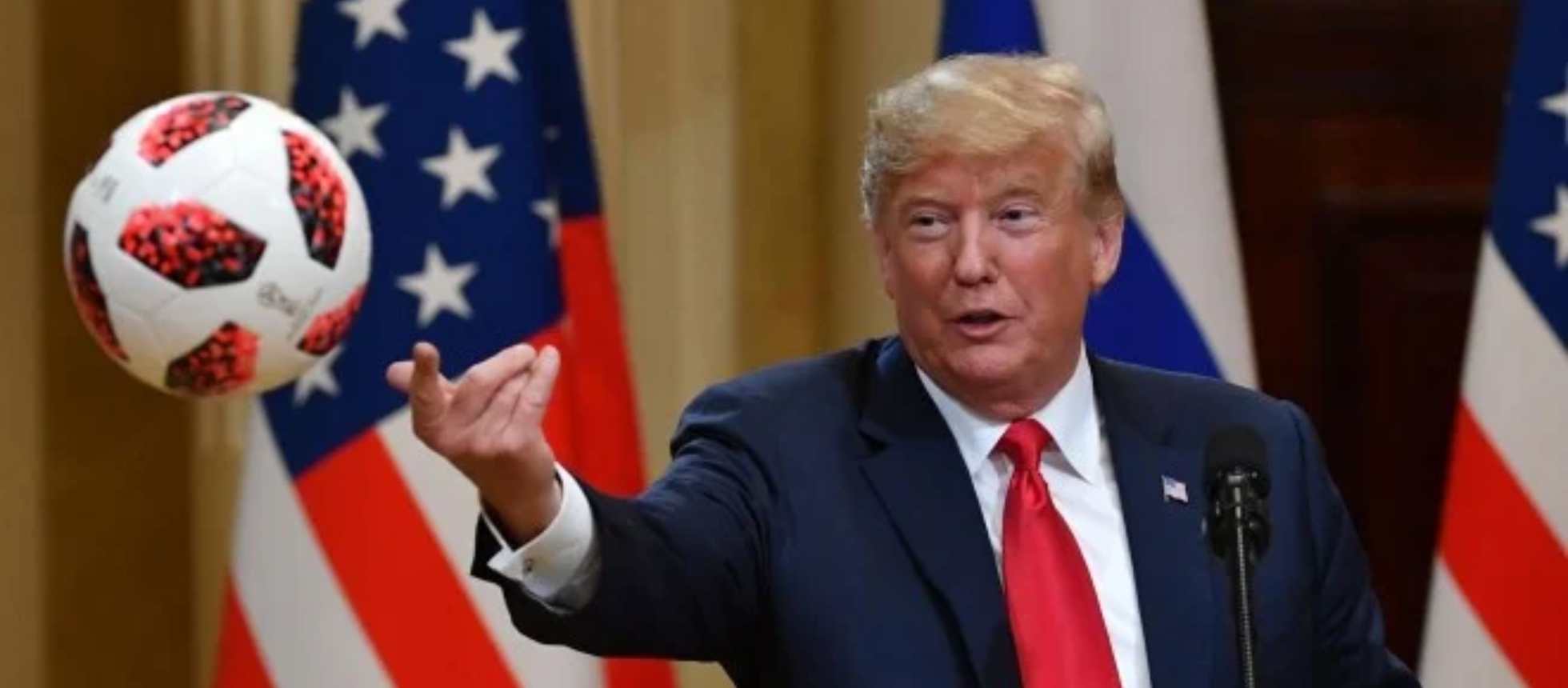President Donald Trump is exploring the possibility of officially changing how Americans refer to the world’s most popular sport, potentially aligning the United States with international terminology through executive action.
During his attendance at the FIFA Club World Cup final at MetLife Stadium in New Jersey, Trump revealed his interest in renaming “soccer” to “football” in a conversation with streaming channel DAZN TV. The president appeared confident about his authority to make such a change, stating, “I think we can do that, I think I could do that.”
Trump acknowledged the global linguistic divide surrounding the sport’s name, explaining, “They call it ‘football,’ but I guess we call it ‘soccer,’ but that change could be made very easily. But it’s great to watch.”
This potential nomenclature shift would represent a significant departure from American sporting tradition. The United States, along with Canada and Australia, has long used “soccer” to distinguish the sport from American football, while virtually every other nation refers to it as football. For American soccer enthusiasts, the term has become a badge of sporting independence – U.S. supporters famously chanted “it’s called soccer” during a World Cup match against England in 2022.
The president’s consideration of this change comes as the United States prepares to co-host the 2026 World Cup alongside Mexico and Canada. Trump’s presence at the Club World Cup final, where he sat alongside FIFA President Gianni Infantino, shows his growing engagement with international soccer administration.
The timing appears strategic, given Trump’s history of implementing name changes through executive authority. His administration has already mandated the renaming of the Gulf of Mexico to the Gulf of America, demonstrating his willingness to use presidential powers for geographic and linguistic alterations.
Trump’s involvement in the sport extends beyond presidential interest. As a former owner of the New Jersey Generals in the United States Football League during the 1980s, he brings personal experience with American professional sports ownership to his current role.
His appearance at the championship match, where Chelsea defeated Paris Saint-Germain 3-0, drew mixed reactions from attendees. The president faced audible disapproval from some fans when shown on the stadium’s large screen, and later participated in the trophy presentation ceremony.
Chelsea midfielder Cole Palmer, who scored twice in the victory, expressed surprise at the president’s prominent role in the celebration. “I knew he was going to be there, but I didn’t know he was going to be on the stand when we lifted the trophy, so I was a bit confused,” Palmer commented.
The potential terminology change raises questions about implementation and public acceptance. While presidential executive orders carry significant weight in federal contexts, changing deeply ingrained cultural language patterns presents unique challenges that extend beyond governmental authority.
Whether such a change would resonate with American sports fans or face resistance remains to be seen, but the president’s casual confidence in his ability to implement it suggests serious consideration of the proposal.


